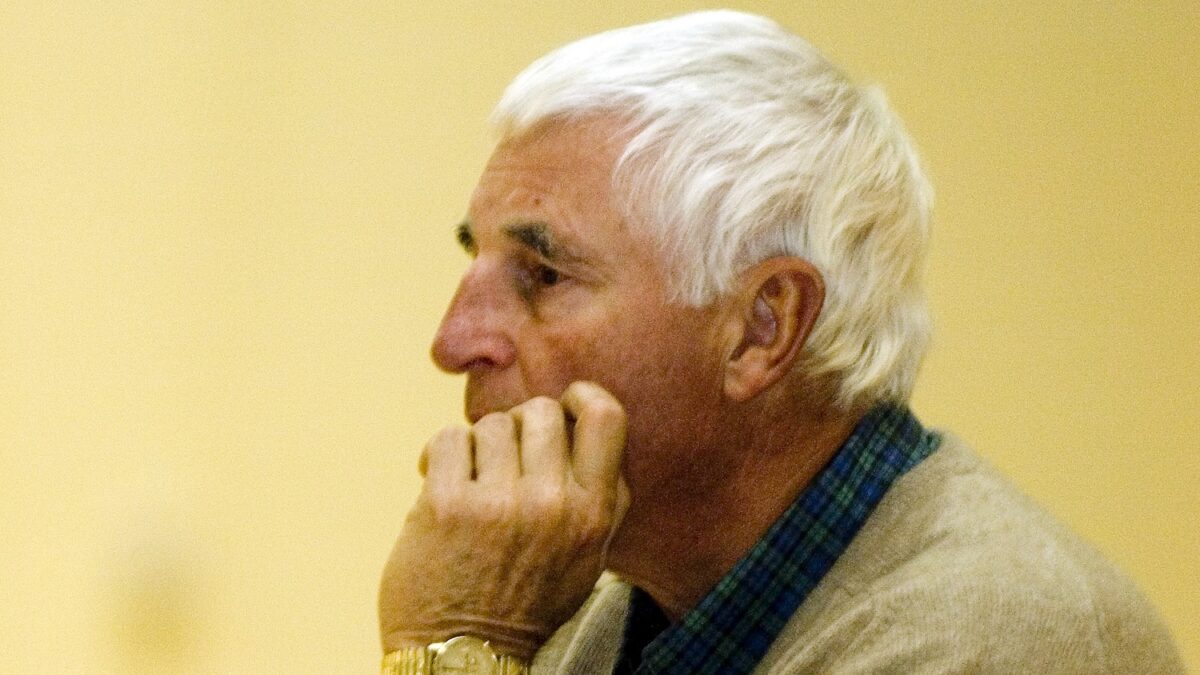The passing of Bob Knight invites us to navigate the intricate labyrinth of a legacy, replete with towering achievements and troubling missteps. Here was a man who commanded both the basketball court and the cultural conversation with a blend of brazen certainty and complicated human frailty. He was, in essence, a vivid embodiment of the American paradox: a culture that idolizes both rugged individualism and collective accomplishment.
Bob Knight was nothing if not a traditionalist. In an era awash with moral relativism, he stood as a granite monument to a certain set of old-school values — discipline, hard work, and above all, personal responsibility. His coaching style was the antithesis of the coddling, participant-trophy ethos that pervades much of modern America. In his world, merit was the only currency that mattered.
But here’s the rub: The same unbending principles that made him a coaching legend also led to his downfall. His now-infamous chair-throwing episode and other heated confrontations were not mere aberrations but rather the inevitable byproducts of a life lived without compromise. It’s tempting to label these as defects in character, but that would be too facile a conclusion. These were not flaws so much as they were exaggerated manifestations of his virtues. Like a Shakespearean protagonist, Knight was both elevated and undone by the very traits that defined him.
Herein lies the enigma of Bob Knight. His refusal to bend — even when it would have been politically expedient, even when it led to his ouster from Indiana University — simultaneously marred and ennobled his legacy. One cannot help but ponder: What is the cost of unyielding principle? Knight himself seemed uninterested in that calculation, treating compromise as anathema, a contamination of the purity he sought in both basketball and life. It was as if he waged a perpetual battle against not just opposing teams but also against the vagaries of human weakness.
This duality can be uncomfortable to grapple with. We live in a time that demands easy categorizations, where public figures are sorted into columns of good and bad, admirable and deplorable. But Knight defies such simplistic assignments. He was a man who had an almost religious faith in the power of discipline and hard work, yet this faith led him to moments of public ignominy that often eclipsed his accomplishments.
There’s a deeper lesson here, beyond the specifics of one man’s life. Knight’s story serves as a compelling lens through which to examine the American ethos itself. We are a nation enamored with the idea of uncompromising principle, yet we are repeatedly confounded when those same principles lead to complex, often uncomfortable outcomes.
Knight’s life also serves as a counterpoint to the contemporary celebrity culture that increasingly infuses sports. Today, many athletes become brands, their personas carefully cultivated to serve corporate interests. Coaches, too, often play along, their confrontations and sound bites stage-managed for maximum media effect. Against this backdrop, Knight stood as a defiant outlier. He had no interest in cultivating a palatable public image; he would not be commodified. This utter disregard for public relations made him a polarizing figure, but it also made him authentic, an individual who refused to be anything but himself, regardless of the consequences.
To understand Knight solely as a hero or a villain is to miss the instructive value of his life. His legacy challenges us to confront the inherent complexities of principle and human character, to reconcile the conflicting urges for individual excellence and collective harmony. And in that tension, in that gray area between absolutes, lies a narrative that speaks not just to the life of Bob Knight, but to the ever-unfolding story of America itself.
So as we bid farewell to Bob Knight, it’s worth reflecting on the larger questions his life provokes. How do we measure a life lived in the public eye, marked by both towering triumphs and disquieting failings? How do we balance the pursuit of individual excellence against the claims of community and shared values? In contemplating these questions, we do more than memorialize a basketball legend; we engage in a form of national self-examination, confronting the paradoxes and contradictions that define us as a people.
As arenas across the nation dim their lights, it is not just a man but an era that is passing. Yet the questions Bob Knight posed in his lifetime remain, undimmed and demanding our attention.
This article was originally published on the author’s website.









